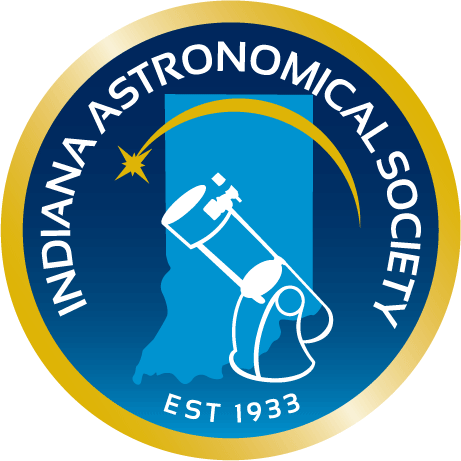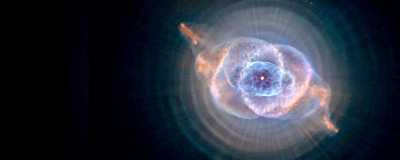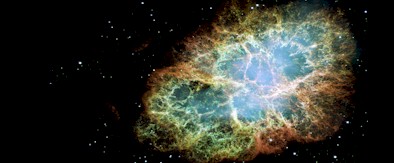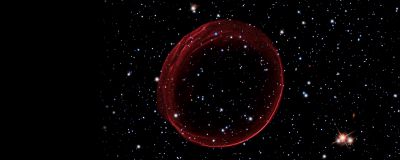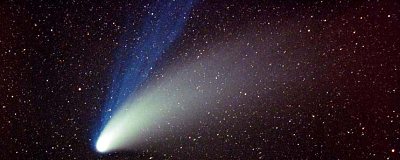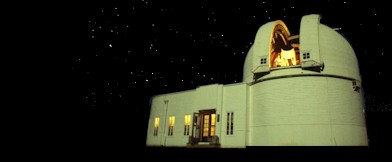
Indiana Astronomical Society
Astronomy 101 Syllabus
So you think you are interested in amateur astronomy? Well, you are not alone. Every one of us who has become "hooked" on our hobby started out right where you are now. Hopefully we can get you started in such a way that you will find our hobby interesting and rewarding.
Most beginners get involved in amateur astronomy because they have looked up at the majestic night sky and found it fascinating. We have all marveled at the beautiful images from the Hubble Space Telescope. Just remember, if you expect to see images like those from Hubble, you are going to be deeply disappointed. After all, if we amateurs could see "stuff" just like Hubble, NASA would never have spent billions of dollars putting the observatory into orbit.
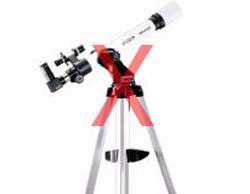 Our assumption here in Astronomy 101 is that you are primarily interested in
observing the night sky. So, this is where we will spend our time with you. First,
and this is extremely important: Do not go out and buy a telescope until you
are sure you know what you want/need.
Our assumption here in Astronomy 101 is that you are primarily interested in
observing the night sky. So, this is where we will spend our time with you. First,
and this is extremely important: Do not go out and buy a telescope until you
are sure you know what you want/need.
There are lots of telescopes out there and some are total junk. We strongly recommend that you do not make a major purchase that could very well disappoint you once you gain additional experience.
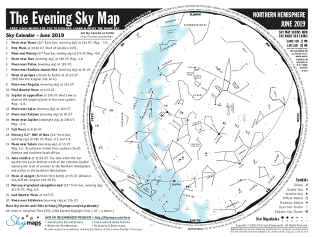 If you haven't already done so, stretch out in a lawn chair and look up at the
night sky. You will be amazed what you can see on a clear, dark night just by
"looking up." Most people have binoculars so try using them from the lawn
chair, you will see even more. Just scan the sky and look for areas of interest.
The moon is visible almost every clear night of the year. Look along the
"terminator," the region between the light and dark parts of the moon.
This is where you will find the most visible detail. Light pollution (along with
clouds) is the biggest adversary for the observer. If you live in an area where
there is a lot of light pollution, try going out into the country where the sky
is much darker. State Parks are a great place to view the night sky and you
will see a lot more.
If you haven't already done so, stretch out in a lawn chair and look up at the
night sky. You will be amazed what you can see on a clear, dark night just by
"looking up." Most people have binoculars so try using them from the lawn
chair, you will see even more. Just scan the sky and look for areas of interest.
The moon is visible almost every clear night of the year. Look along the
"terminator," the region between the light and dark parts of the moon.
This is where you will find the most visible detail. Light pollution (along with
clouds) is the biggest adversary for the observer. If you live in an area where
there is a lot of light pollution, try going out into the country where the sky
is much darker. State Parks are a great place to view the night sky and you
will see a lot more.
As you gain observing experience you will want to learn more about "what's up" in tonight's sky. Most people know about constellations, but which ones are currently visible? Will I even recognize them if I see them? What are the names of the bright stars that I can see? Are any of the planets visible tonight? Are there any Deep Sky Objects (DSOs) that I can see? To answer these questions, and many more, you will need a roadmap of the sky. These roadmaps are called sky charts and planetariums. A simple free version of a sky chart is available online at http://skymaps.com/.
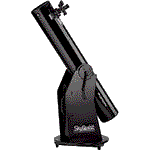 Have you ever wondered how a telescope works? Is it just plain old magic? Nope,
there is a real reason that we can see all of those objects in space that are so
very far away. If you would like to know more, take a look at
hostuffworks.com.
This site does a great job of introducing the beginner to the kinds of
telescopes that exist and how they work.
Have you ever wondered how a telescope works? Is it just plain old magic? Nope,
there is a real reason that we can see all of those objects in space that are so
very far away. If you would like to know more, take a look at
hostuffworks.com.
This site does a great job of introducing the beginner to the kinds of
telescopes that exist and how they work.
Need some information or recommendations about telescopes? You might find the videos at Small Optics YouTube Channel helpful.
As an IAS member, you are welcome to borrow one of the club telescopes and take it for a test drive. Having experimented with what's available you'll be in a better position to make your first telescope purchase. More information can be found in the Equipment Loan Program page.
Still interested and want to learn more? Why not attend some of our IAS functions? The IAS has free events on a monthly basis that will introduce you to our hobby. During the summer months, the McCloud StarGaze is held at McCloud Nature Park. This event is specifically intended for the beginning amateur astronomer. It includes a short meeting that introduces you to the night sky and then, weather permitting, an observing session with club-provided telescopes follows each meeting.
We also have a General Meeting every month that features a guest speaker who will address an area of interest to the amateur astronomer. Following the General Meeting we often hold an observing session at Goethe Link Observatory (weather permitting). You can find the date, time and location (along with maps) for each of these events in our website's Calendar of Events.
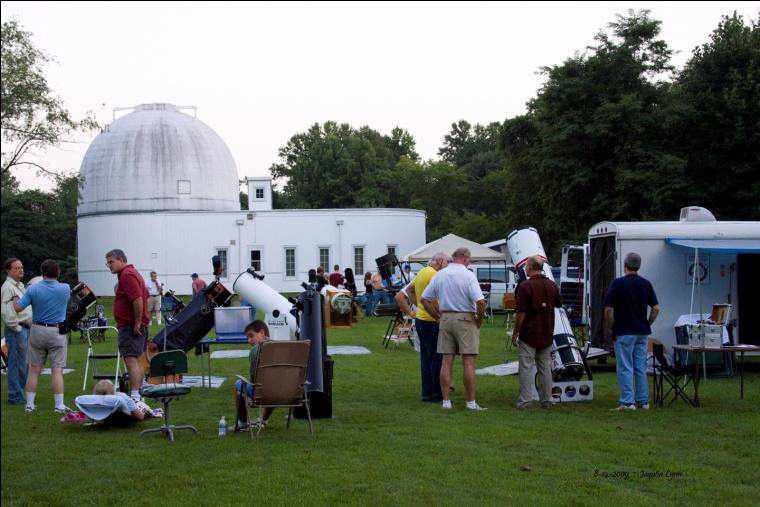 Another way to get to "see us in action" is to attend a star party. A
star party is where amateur astronomers (sometimes in the hundreds) get together
with their telescopes to observe and image the night sky and to "network"
about our hobby. These events usually occur during the weekend of a New Moon.
Another way to get to "see us in action" is to attend a star party. A
star party is where amateur astronomers (sometimes in the hundreds) get together
with their telescopes to observe and image the night sky and to "network"
about our hobby. These events usually occur during the weekend of a New Moon.
If you have never attended a star party you are really missing out on the finest of night sky observing. When you go to a star party you will see observing equipment of all types, kinds and prices. Most telescope owners are quite happy to share their telescope and knowledge with you. What a wonderful place to learn and become acquainted with other amateur astronomers!
Once you have attended some astronomy events, we're sure you'll find that there's a lot more to amateur astronomy than you ever thought possible. You may have even discovered your real area of interest is not what you thought it was. Hopefully you've had the opportunity to view through various types of telescopes (and other observing tools) that are available. You may have even decided what type of telescope best fits your interests. You have been introduced to a whole new vocabulary of names and terms. You have found additional sources of information including books, the internet, monthly publications and computer software (just to name a few) that will allow you to continue to learn about your new hobby.
 You have just scratched the surface. Amateur astronomy is a lifelong pursuit
and the only regret that many of us "old timers" have is that we didn't
start early enough in our lives. For many, amateur astronomy is a family
happening. Regardless, the time for you to really get started is now.
You have just scratched the surface. Amateur astronomy is a lifelong pursuit
and the only regret that many of us "old timers" have is that we didn't
start early enough in our lives. For many, amateur astronomy is a family
happening. Regardless, the time for you to really get started is now.
Come join us at one of our functions. It will cost you nothing; all of our events are free. If you find us to be the friendly, interesting and informative organization that we believe we are, you may even decide to join and become an official member. Meanwhile, feel free to contact us via our contacts page here on the web site for additional information.
Beginning Astronomy articles
- AAAA Observing Log and Sketch Template.pdf
- AAAA Observing Log.pdf
- Beginning Stargazing Books for Kids and Adults.pdf
- Green Laser Pointer Hazard.pdf
- IFAS Binocular Handbook.pdf
- IFAS Messier Handbook.pdf
- IFAS Novice Handbook.pdf
- Messier Catalog.pdf
- Free Astronomy textbook
